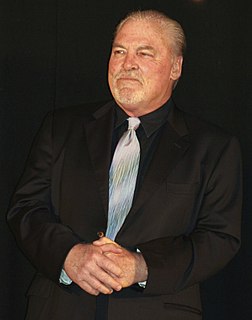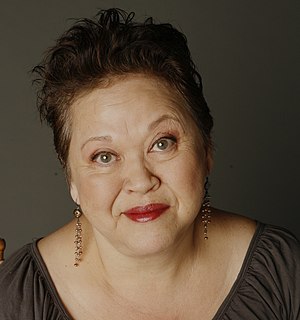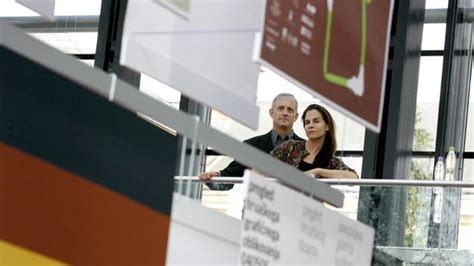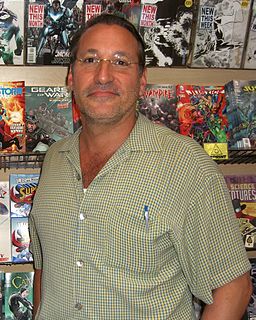A Quote by Stacy Keach
I think so. I can't think of anything that requires more finesse than comedy, both from a verbal and visual point of view.
Related Quotes
I don't think so much about verbal comedy. I always think about visual comedy. I was raised watching silents, and I'm always thinking about how to make cinema, not good talking - although I want good talking. I'm much more interested in framing, composition, and orchestration of bodies in space, and so forth.
Usually in theater, the visual repeats the verbal. The visual dwindles into decoration. But I think with my eyes. For me, the visual is not an afterthought, not an illustration of the text. If it says the same thing as the words, why look? The visual must be so compelling that a deaf man would sit though the performance fascinated.
I don't think so much about verbal comedy. I always think about visual comedy. I was raised watching silents, and I'm always thinking about how to make cinema, not good talking - although I want good talking. I'm much more interested in framing, composition, and orchestration of bodies in space, and so forth. My goal is always what Chuck Jones wanted his Warner Brothers cartoons to be, which was if you turn down the sound, you could still tell what's going on. I think if you watch most of my films with the sound off, you could still tell what's going on.
[T]he more clamour we make about 'the women's point of view', the more we rub it into people that the women's point of view is different, and frankly I do not think it is -- at least in my job. The line I always want to take is, that there is the 'point of view' of the reasonably enlightened human brain, and that this is the aspect of the matter which I am best fitted to uphold.
This is going to sound pretentious, but I like comedy that addresses something I find either worrisome or interesting in my life. I like Louis C.K.'s stuff or Bill Burr's stuff. I feel like there's comedy where someone will think of something that they think will work comedically, and then they reverse engineer that point of view so they can say that funny thing. The comedians I like, it could be an allusion, but it feels like their point of view comes first and then the jokes are a reflection of what they actually believe, or are frightened of, or are curious about, or are interested in.
Good design today requires more vision (a larger point of view versus the single brilliant idea), more consistency (a deeper underlying structure of language and form versus the simple, uniform application of visual elements) and more patience (persistence over time versus creative authoritarianism).
I do think some games are works of art, although their medium is visual rather than verbal. Both games and novels allow the reader/player to become a protagonist in the theater of the imagination. Both build worlds. In my opinion, the big difference between game and novel is in narrative structure. Communal role-playing games are open-plan without an end. A novel - at least the kind I write - has a closed structure with a beginning, a middle, and an end. I like that closed structure, and I feel I can say more with it.
The computer revolution is a revolution in the way we think and in the way we express what we think. The essence of this change is the emergence of what might best be called procedural epistemology-the study of the structure of knowledge from an imperative point of view, as opposed to the more declarative point of view taken by classical mathematical subjects.



































